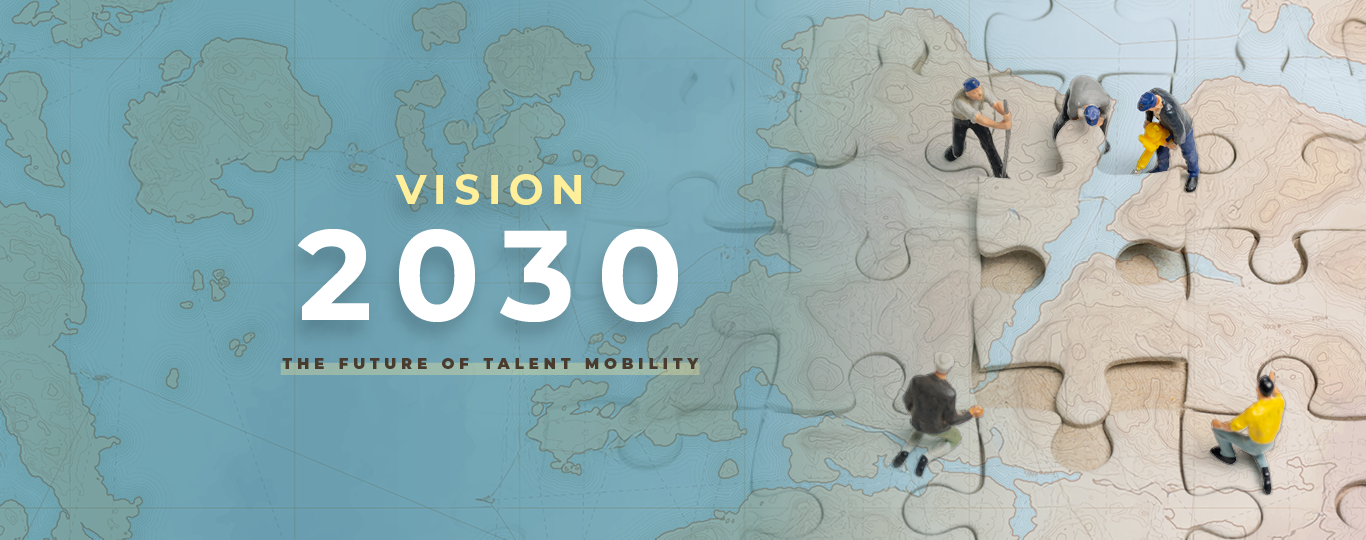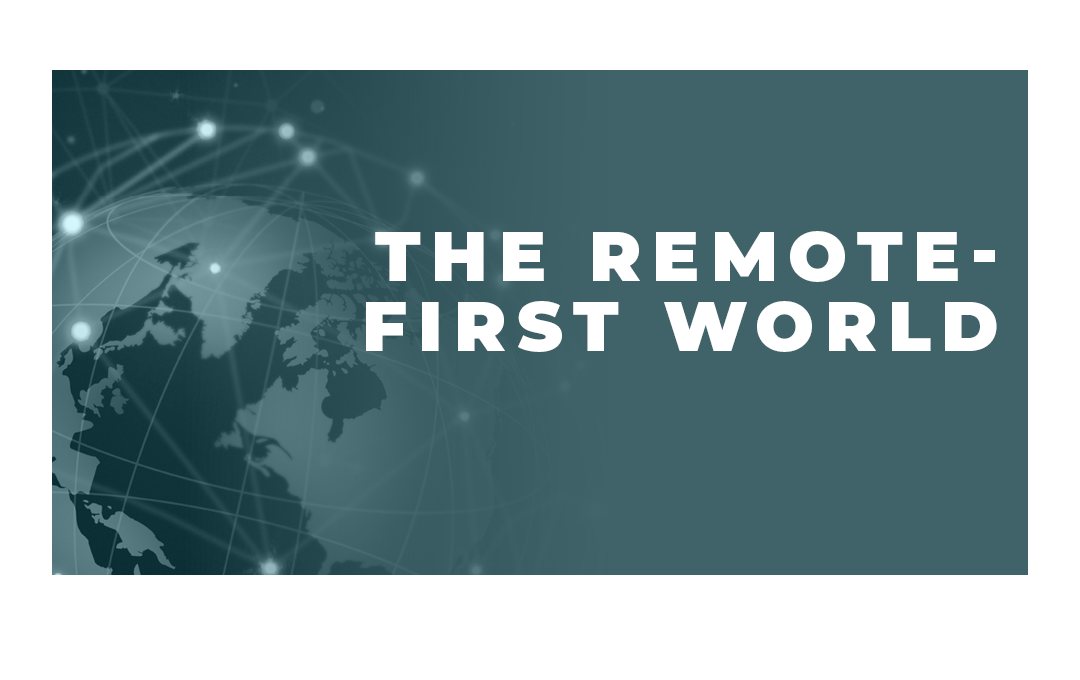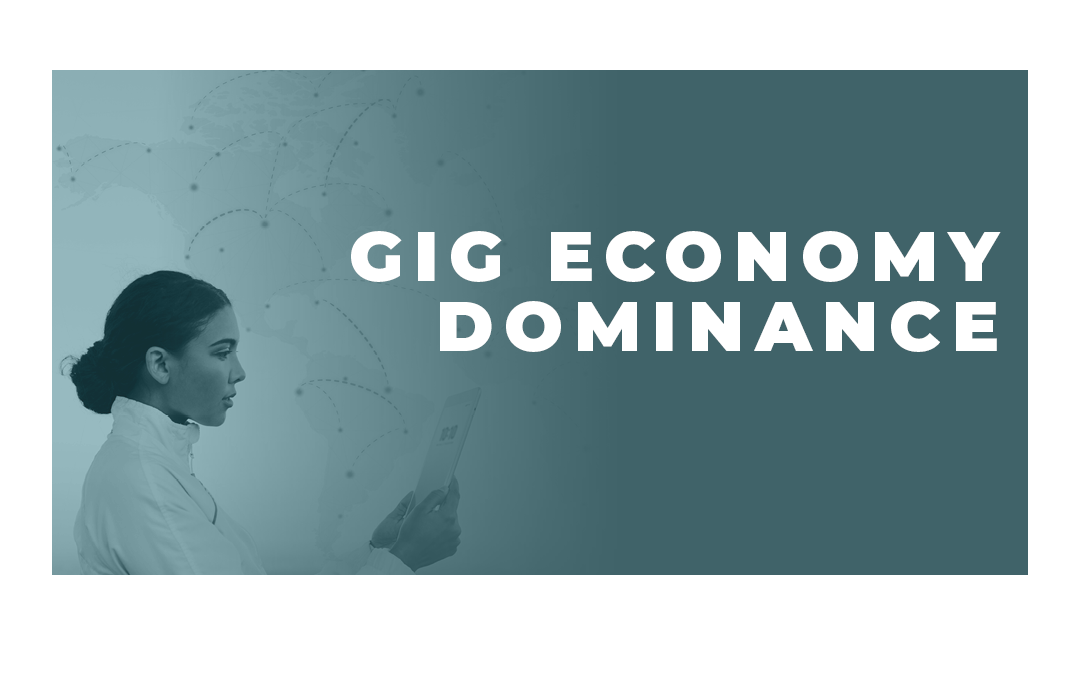
What do you think?
While researching the shape of global work in 2030, we identified three potential scenarios that would directly impact global mobility and international talent management.
- A dominant gig economy where more of the workforce are self-employed,
- A world where the majority of once office-based employees are now remote-first or hybrid,
- An increased focus on the wellbeing, development and long-term satisfaction of employees to create sustainable, global careers.
You will find the full context for these scenarios in our research paper, Vision 2030 - the future of talent mobility, available to download from the RES Forum website.
Sharing perspectives
To test these scenarios in the real world, we have spoken to people from across our industry, and beyond.
In return, they have written about the opportunities and threats, risks and implications, positives and negatives. Some have even offered an altogether different vision for 2030.
You can read a selection of these pieces on the RES Forum blog.



Tell us what you think
We want to hear your thoughts on these scenarios.
What would they mean for your international colleagues and their families? How do they affect culture, benefits and compliance? Do you have an different vision for your organisation?
Your article will become part of our research, with the potential to feature on the RES Forum blog and our LinkedIn page.
This can be done anonymously, if necessary.
Join the conversation
- register via the form and we will follow up with an email, or
- send your piece to office@theresforum.com, using "Vision 2030 commentary" as the subject.
Full details of each scenario can be found below.
Pieces submitted by 31st August 2025
Register here
The scenarios

The remote-first world
In this scenario, remote work has evolved from being a temporary solution during the COVID-19 pandemic to becoming the predominant mode of employment. A large portion of the global workforce now operates from various international locations, often far from their organization's headquarters.
The traditional office model is largely phased out, with companies embracing virtual collaboration tools and digital platforms to maintain productivity and connectivity. This shift has brought about significant changes in how organizations manage their employees, maintain their culture, and ensure compliance with varying international regulations.
The Remote-First World requires organizations to rethink their strategies for talent management, technological infrastructure, and employee well-being, all while navigating the complexities of cross-border work arrangements.
Assessment focus
1. DIGITAL INFRASTRUCTURE:
Evaluate the robustness and effectiveness of your digital tools and platforms. Consider whether they support seamless communication, collaboration, and data security for a globally distributed workforce. Are your systems scalable, and can they handle the increased demand for virtual meetings, file sharing, and other remote work needs? How easily can your employees access the tools they need to perform their jobs from anywhere in the world?
2. CROSS-BORDER COMPLIANCE:
Assess your organization's ability to manage the complex tax, immigration, and labour laws associated with a remote workforce that operates across multiple jurisdictions. How well does your organization stay informed about, and comply with, the varying legal requirements in different countries? Are you equipped to handle the intricacies of cross-border employment, such as permanent establishment risks, local payroll obligations, and visa management?
3. CULTURAL COHESION:
Consider how well your organization maintains a cohesive culture and ensures employee engagement in a predominantly virtual environment. What strategies are in place to foster a sense of belonging and shared values among employees who may never meet in person? How do you sustain company culture and promote collaboration across different time zones and cultural backgrounds?
4. EMPLOYEE SUPPORT:
Review your support structures for remote employees, focusing on their mental health, work-life balance, and productivity. Do you offer adequate resources for remote workers to manage stress and maintain their well-being? How effectively do you support employees in balancing their professional and personal lives, especially those in different time zones or with unique home environments?

The rise of sustainable, global careers
In this scenario, the focus on sustainability has extended beyond environmental concerns to encompass the wellbeing, career development, and long-term satisfaction of employees. Organizations recognize that supporting sustainable careers - those that balance personal fulfilment, continuous learning, and job security - is essential for attracting and retaining top talent in a competitive global market.
As a result, GM programmes are being redesigned to prioritize employee wellbeing, mental health, and career growth. This approach ensures that employees are not only productive but also happy and engaged over the long term.
In a world where worklife balance, mental health, and job satisfaction are paramount, organizations must develop strategies that align with these evolving priorities while still achieving business objectives.
Assessment focus
1. MENTAL HEALTH SUPPORT:
Evaluate the effectiveness of your organization’s mental health programs for globally mobile employees and their families. Consider whether your organization provides access to mental health resources, counselling services, and support networks that are tailored to the unique challenges faced by expatriates. How proactive is your organization in addressing mental health concerns, and how well are these services integrated into the overall GM programme?
2. CAREER INTEGRATION:
Assess how well your GM programme aligns with broader career development initiatives. This includes ensuring that international assignments contribute meaningfully to the employee’s long-term career goals and development plans. Are there clear pathways for career progression for those who take on global roles? How well do you support employees in transitioning back to their home country or into new roles after their assignment ends?
3. SUSTAINABILITY PRACTICES:
Consider how your GM practices contribute to broader sustainability goals, such as reducing carbon footprints, promoting work-life balance, and ensuring the long-term viability of your GM programme. Are your practices designed to minimize environmental impact while maximizing employee satisfaction and retention? How well does your programme align with the organization's overall sustainability strategy?
4. EMPLOYEE HAPPINESS AND PRODUCTIVITY:
Analyse the methods you use to measure and enhance the happiness and productivity of employees on international assignments. Do you regularly gather feedback from expatriates to understand their experiences and needs? How effectively do you address any issues that arise to maintain high levels of job satisfaction and productivity? Consider whether your organization takes a holistic approach to supporting expatriates, including providing personalized support based on individual needs and preferences.

Gig economy dominance
In this scenario, the gig economy has expanded significantly, with a large portion of the workforce engaged in short-term, project-based work rather than traditional full-time employment. This shift has transformed the GM landscape, as organizations increasingly rely on a more flexible, on-demand workforce to meet their business needs.
The dominance of the gig economy requires companies to adapt their GM programmes to accommodate the unique demands of gig workers, who often require different forms of support, technology, and compliance management.
Organizations must be agile in their approach, ensuring that they can attract, integrate, and manage a diverse and transient workforce while maintaining efficiency and compliance across multiple jurisdictions.
Assessment focus
1. FLEXIBILITY AND AGILITY:
Evaluate your organization’s ability to accommodate the needs of gig workers, including those engaged in short-term, project-based assignments. Consider how quickly and effectively your organization can adapt to fluctuating demands for different skills and expertise. How flexible are your policies and processes in supporting the dynamic nature of gig work, including the ability to scale up or down based on project requirements?
2. INTEGRATION OF GIG WORKERS:
Assess how well gig workers are integrated into your organization’s broader talent management strategy. This includes providing them with access to the same resources, opportunities, and support as traditional employees. How effectively does your organization onboard, engage, and retain gig workers? Do you offer pathways for gig workers to transition into more permanent roles if they desire?
3. TECHNOLOGY AND TOOLS:
Consider whether your current technology infrastructure supports the unique needs of a gig-based workforce. This includes tools for project management, communication, and collaboration that are accessible to gig workers who may be dispersed across different locations and time zones. How well does your technology enable gig workers to contribute effectively and stay connected with the organization, regardless of their location or
contract duration?
4. COMPLIANCE AND CONTRACTS :
Review your compliance and contractual strategies to manage the legal complexities of employing gig workers across borders. This includes understanding and adhering to different labour laws, tax obligations, and employment standards in various countries. How robust are your systems for ensuring that all contractual agreements with gig workers are legally compliant and protect the organization from potential risks?
